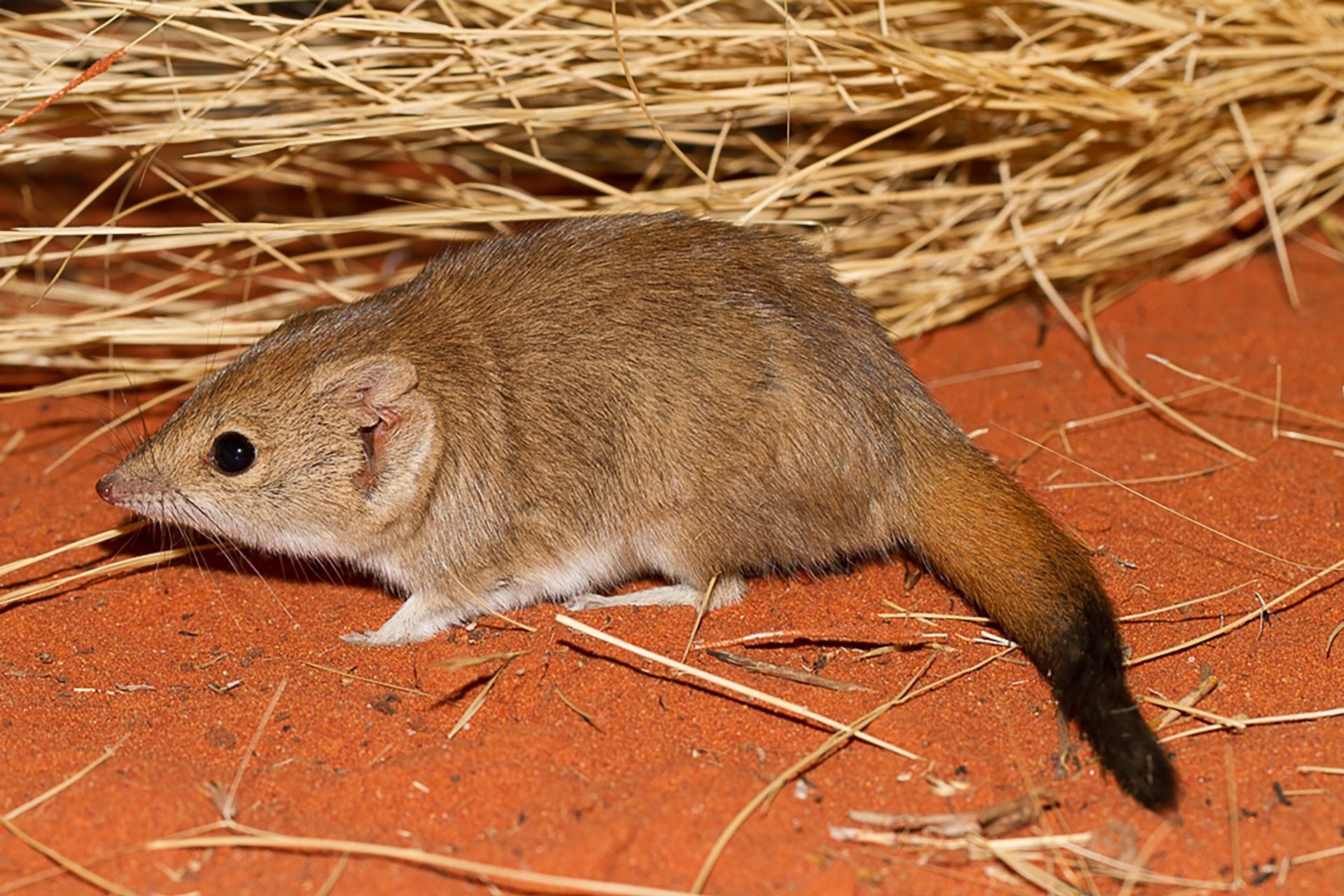The exciting discovery of three new species of a small Australian marsupial has been tempered by the sad fact that each of the newly identified species of mulpkgara is likely already extinct.
 A Crest-Tail Mulgara. Image Credit: Bobby Tamayo, Simpson Desert, QLD
A Crest-Tail Mulgara. Image Credit: Bobby Tamayo, Simpson Desert, QLD
The Curtin University-led study has identified three new species of mulgaras, which are small carnivorous marsupials related to the Tasmanian Devil and quoll and that are important to the arid and semi-arid regions they inhabit in South Australia, Western Australia, the Northern Territory and Queensland.
Led by Curtin PhD student Jake Newman-Martin, a collaboration with Dr Kenny Travouillon from the Western Australian Museum, Associate Professor Natalie Warburton from Murdoch University and Associate Professor Milo Barham and Dr Alison Blyth both from Curtin analysed preserved specimens of mulgaras from museums across the country, including bones found in caves which had previously not been identifiable.
Mr Newman-Martin said the research had identified six species of mulgaras, as opposed to the previously accepted two and it also concluded that a third previously named mulgara was indeed a valid species. However, four of the proposed species appeared to be already extinct.
“Known as ‘ecosystem engineers’, mulgaras are immensely important to the regions they inhabit as they help control the population of insects and small rodents and assist turning over the desert soils by burrowing,” Mr Newman-Martin said.
“By taking precise measurements of the skulls and teeth of preserved mulgara specimens, we were able to differentiate the species, the exact number of which had previously been the source of some debate.
“Using the skulls and teeth of mulgaras had previously not been achievable because no study had documented and measured the bones in detail. Our study shows that mulgaras are actually far more diverse than previously thought.”
Research co-author Dr Kenny Travouillon, Curator of Mammalogy at the Western Australian Museum, said while the discovery of more species of mulgaras may sound like good news, the fact they were likely already extinct was disconcerting.
“While Australia is renowned for its diverse and unique marsupials, it also has the highest mammalian extinction rate in the world, with many species suffering from the impacts of environmental degradation and introduced predators such as foxes and cats,” Dr Travouillon said.
“The most at-risk species are often overlooked small marsupials, which have suffered a great drop in their abundance and distribution since European colonisation.
“The mulgaras may even represent the first recorded Australian extinction within the broader family of related animals (Dasyuridae) and are sadly disappearing with even less recognition than their now infamous ‘cousins’ the Tasmanian Tiger (Thylacine).
“It is likely that many more undescribed species have already become extinct before they could be known to science, highlighting the need to better understand Australian wildlife and the growing threats to our ecosystems.”